Making Smart Investment Decisions: Tips for Expats
By Chad Creveling, CFA, and Peggy Creveling, CFA
Which investment would you rather own?
- An investment in the market that has earned an average annual return of 6% for the past five years but has just plummeted by 20%.
Or
- An equivalent investment in a property, 80% funded by a 30-year, 4% fixed-rate mortgage, which after five years is worth 20% more than you paid for it.
If you’re like most people, you'd choose the property, hands down.
But is that really the best choice for expat investors? Let's look at the numbers.
Investment Portfolio
Assume you've invested $100,000 in the markets, which has returned an average annual return of 6% over the past five years. At the end of five years, you have an investment worth $133,823. Unfortunately, the very next day, the market enters a rough patch and falls by 20%. Your $133,823 is now worth only $107,058—a loss of $26,765.
Most people will focus on the loss but fail to realize the portfolio is still up $7,058 over the initial investment of $100,000 five years ago. If they sold at this point and paid capital gains taxes, they would have $105,999. That's not a great return, but it's still not a loss.
Let's take a look at the property.
Property Investment
In this case, assume you bought a property five years ago for $500,000. You put in $100,000 of your own money as a down payment and financed the rest with a 30-year, fixed-rate mortgage at 4%. The property is now worth $600,000. This is a 20% gain, or $100,000 more than you paid for it.
Not bad. It certainly looks a lot better than the investment in the markets.
Many people would think they had earned $100,000 on the property, plus or minus a few expenses. They'd certainly be surprised to learn that they actually had lost money.
Accounting for All Cash Flows
When you buy and sell property, you pay closing costs in the form of real estate brokerage and other administrative fees. These fees are usually 3–7% of the purchase price or more in many markets. For this example, we assumed you paid 4% in closing costs and fees.
The mortgage also carries a cost. A 30-year, fixed-rate mortgage at 4% is a pretty good deal in most markets, but this still requires annual principal and interest payments of $22,916. Most of those early payments are interest payments to the bank for the privilege of using their money (actually someone else's money). At the end of year five, the mortgage has only been paid down from $400,000 to $361,790. You have paid $76,369 in interest, however.
In reality, there are many other costs to property ownership, such as loan origination fees, property taxes, maintenance and upkeep, and insurance. We've tried to keep it simple in this example, though, and only accounted for mortgage payments and closing costs.
Where's the Profit in Real Estate?
OK, back to our example. At the end of year five, you sell the property for $600,000. Upon sale, you pay closing costs of $24,000 and pay off the remaining mortgage of $361,790. You are now left with $214,210. You also have to pay capital gains tax, estimated at $8,400. After tax, you have $205,810. That still looks OK since you put up only $100,000, right?
Well, you actually paid $20,000 in closing costs at purchase in addition to your $100,000 down payment. You also paid $22,916 per year on the mortgage for five years for a total of $114,580. Some of this went to principal payment, but you got that back when you sold the property.
All in, you paid out $234,538 for the property over five years in the down payment, closing costs, and mortgage payments. When you sold the property, you received $205,810 after paying closing costs on the sale, paying off the remaining mortgage and paying capital gains tax.
This is a net loss of $28,769—and it doesn't include all the other fees that come along with property ownership and that also eat away at your return.
What's the Point?
The point is not that investing in the market is always better than investing in property. Property can often be a great investment. What we are trying to say is:
- You need to account for all cash flows when evaluating an investment. Selective accounting leads to poor financial choices and a destruction of household wealth.
- Be aware of overestimating the risks of investments that have transparent pricing, like the stock market—they often seem riskier than they are. At the same time, don't be lulled into a false sense of security by investments that lack transparent pricing, such as property. The risks are often underappreciated.
- Be careful of moving benchmarks and mental accounting when evaluating investments. Investors tend to evaluate property by the original purchase price while ignoring all other factors. Theoretical market values today (often based on wishful thinking) are compared with the original purchase price, ignoring other cash flows. In tough property markets, property values are carried on paper and in the minds of investors based on the price they paid, not the price they could get if they were forced to sell in tough market conditions.
- Investments in the financial markets, on the other hand, are subject to transparent pricing and rolling benchmarks. The benchmark for evaluation tends to become the previous high or the value at the end of the last calendar year, not the original purchase price as is the case with property investments. In our example above, many investors would think they lost 20% rather than that they are up 7% on their original investment.
The path to financial security is paved with good decisions. To ensure you are making smart choices with your money, make sure you evaluate your investments properly, understand the risks you are taking, and account for all cash flows. Your financial security is too important to rely on a punt.
This article is a revised and updated version of ones that have appeared previously on www.crevelingandcreveling.com.
About Creveling & Creveling Private Wealth Advisory
Creveling & Creveling is a private wealth advisory firm specializing in helping expatriates living in Thailand and throughout Southeast Asia build and preserve their wealth. The firm is a Registered Investment Adviser with the U.S. SEC and is licensed and regulated by the Thai SEC. Through a unique, integrated consulting approach, Creveling & Creveling is dedicated to helping clients cut through the financial intricacies of expat life, make better decisions with their money, and take the steps necessary to provide a more secure future.
Copyright © 2021 Creveling & Creveling Private Wealth Advisory, All rights reserved. The articles and writings are not recommendations or solicitations, and guest articles express the opinion of the author; which may or may not reflect the views of Creveling & Creveling.


